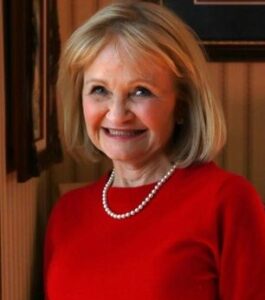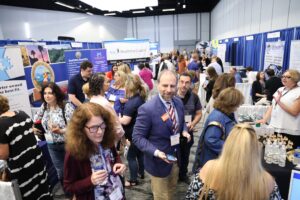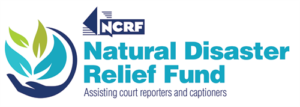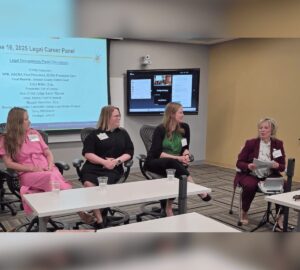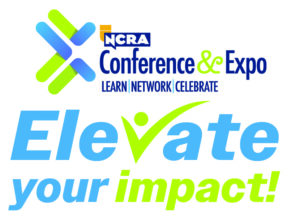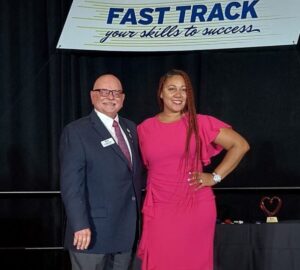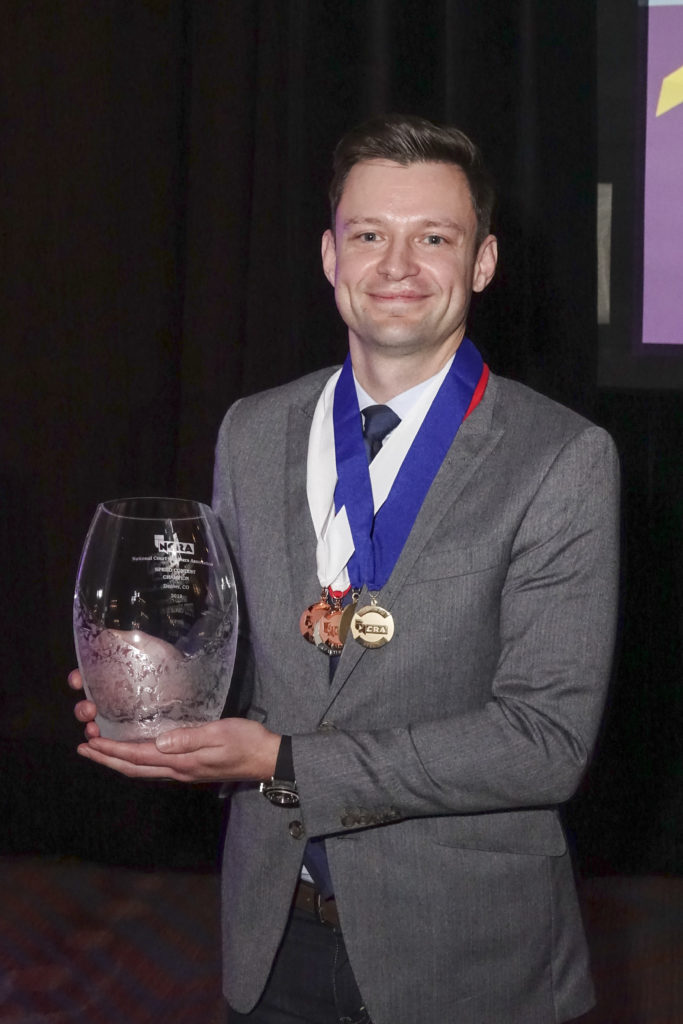
Jeffrey Weigl, RMR, CRR, CRC, from Edmonton, Alberta, Canada, won the 2019 Speed Contest held during the NCRA Convention & Expo. His overall accuracy rate was 97.54 percent or 87 errors total. The JCR Weekly reached out to Weigl to learn more about this, his third win in the Speed Contest.
JCR | Can you tell us a little about your career and where you’re working currently?
JW | I am the president of WizCap Realtime Reporting Inc., a firm I started around ten years ago. My time is currently split among business operations, pretrial legal proceedings, and onsite captioning. Onsite captioning is definitely my favorite aspect of the profession.
JCR | How long have you been working in the profession?
JW | I actually had to look this up. I’ve been a full-time reporter for 14 years now. With my career, marriage, and family, the years slip by pretty fast.
JCR | How did you learn about the profession?
JW | My dad, Jerry, was an official (pen writer) for many years before I was born. After that, he spent the next 11 years as the program head of the Northern Alberta Institute of Technology (NAIT) Captioning & Court Reporting program, followed by 20 years as an instructor. My sisters and I always looked forward to the annual family getaways when my parents would attend the Alberta Shorthand Reporters Association conferences. I was around the profession my entire life and yet never really knew what the heck my dad did. After a somewhat miserable year at university pursuing a science degree, my dad suggested a career in court reporting. I was persuaded to check out the program and liked what I saw, which has proven to be a pretty fortuitous turn of events to say the least.
JCR | This is your third win. Does it feel like it gets easier?
JW | I actually feel like it’s gotten harder each year. I now know what to expect from the contests and how to best prepare, but each time around I’ve been dealing with the pressure of personal expectations, and that’s never helpful. While the content of the tests varies in difficulty year to year, the thing that remains constant is the talent of all of the other contest regulars. If I went in unprepared, I would have no chance at winning. That reality is a big motivator leading up to a contest.
JCR | You compete in both the Realtime and Speed Contests. As a participant, what are some of the nuanced differences you see between the two?
JW | I find them to be incredibly different. While the ability to write quickly is obviously beneficial for Realtime, the difference is in the mental processing. When writing strictly for speed, the more you think about things, the more trouble you find yourself in. You really just have to let things flow with as little hesitation as possible. Realtime is challenging because you need to be quick while at the same time processing what you’re writing – sound-alikes, punctuation, etc. I cannot effectively practice for speed while connected to Case CATalyst. Even if I have my screen turned away, my brain is unable to let go. This year, I did all of my speed practice solely on my writer and then dumped the files into Case CATalyst for review after the fact. I got a ton of dictionary entries that way. I’m still not sure that I could realistically practice toward winning both contests in the same year. Oh, and some of the speed-specific things I like to do – like dropping punctuation and speaker IDs – that doesn’t get you very far in Realtime.
JCR | Do you have a preference on which one you would prefer to win?
JW | My goal has always been to place highly in the Speed Contest, but winning a Realtime title as well would be unbelievable. Doug’s Realtime score this year blows my mind.
JCR | Do you plan to continue to compete at the national level?
JW | Placing in the Speed Contest requires a big personal commitment and a high level of motivation to properly prepare, and I think I’ve maybe scratched that itch. But a win in Realtime would certainly be worth fighting for.
JCR | What motivates you to compete?
JW | I am a competitive person by nature, be it sports, board games, etc. Standing shoulder to shoulder with the greats of our profession is an amazing feeling. Shorthand theory is so personalized and so unique – always changing, adapting, improving. I know that how I wrote five years ago is incredibly different from how I write today, and how I will write five years from now. The feeling that I haven’t yet fully met my shorthand potential is exciting to think about.
JCR | What advice would you have for a person who has never been in a speed contest before? How can they get started?
JW | It all starts with a personal commitment to be better. Put that date in your calendar, whether it’s for an NCRA certification test or a Speed Contest. The goal is improvement, not winning. Runners train to complete marathons. I have never met someone with the goal of winning.
JCR | Do you practice for the Speed or Realtime Contests? If so, what is your plan? If not, to what do you attribute your speed?
JW | Practice? Nope, not at all. Ha ha!
I don’t care how talented someone may be, there is no chance of winning the Speed or Realtime Contests without a very deliberate and consistent practice regimen. The outline of my practice plan has stayed relatively constant the last few years, with minor tweaks added each time around. I start getting back into timed dictation three to four months out, once or twice a week. As time goes on, the frequency increases. By the last month and a half, I am practicing every single day for around an hour. Consistency of practice is key. And throughout the year, I am always looking to incorporate new briefs and phrases that can make my life easier. I find “Brief It” to be a great tool for adding new concepts to my writing.
JCR | Has your win affected you in any way?
JW | Winning aside, practicing at a high level for months at a time will make anyone better at their job. If I’m able to write timed dictation at 280 wpm, the real world becomes less stressful. And had I not caught the bug for competing, I probably wouldn’t have attended very many NCRA events over the past few years, and that would have been such a huge loss personally and professionally. I am very grateful for all of the friendships I have been fortunate enough to make along the way, particularly during this summer’s event in Denver.
JCR | Is there any advice you can give to other NCRA members on how each of us can be an advocate for our profession?
JW | I think the key is being approachable on the job and enthusiastic about what we can do. If someone shows an interest, take the time to explain to them how it all works. And if we all work toward writing faster and cleaner, we will always be the preferred method for creating the record.
JCR | Any questions we should have asked or anything else you would like to share?
JW | Thank you to my family, friends, colleagues, and Stenograph for your support in helping me reach my goals. I hope that I can inspire even a couple reporters to work toward improving their skills like all of the previous contest winners have inspired me.


